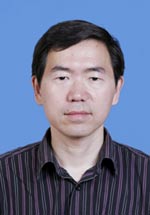 |
| 張明權(quán)? |
本期點(diǎn)評(píng)專家:張明權(quán)
譯題一:成為職場(chǎng)公主 灰姑娘升遷修煉術(shù)
參考譯文:
From Cinderella to Princess: a Story of Promotion in the Job
As the old saying goes in China, "A man is afraid of choosing the wrong trade while a woman the wrong man." The "maxim", however, now sounds rather annoying to many women. Has gender predetermined a woman's life planning? To this question, most women answered "no" when interviewed on March 3, 2011 on the job fair styled as "Spring Wind Project" tailored to help women find a job or start a business of their own. Among those pondering over different jobs were starry-eyed university women itching to find their first jobs, mothers fresh from a maternity leave and coveting new jobs, and "Du Lala's" keen on the promotion in their posts (Du Lala is the woman protagonist of a job success story filmed recently in China).
翻譯和寫作一樣,也需要做到詳略得當(dāng)。前面我們談到過(guò)翻譯的解釋性原則和明晰化傾向,可見(jiàn)翻譯是趨向于多用一些詞匯的,但對(duì)冗余信息的使用并非是翻譯的長(zhǎng)處,而是翻譯的補(bǔ)償手段。在第一段文字中,對(duì)“杜拉拉”給與適當(dāng)?shù)慕忉屖潜匾模驗(yàn)橛⒄Z(yǔ)讀者大多并不了解在中國(guó)頗為流行的這樣一部反映職場(chǎng)女性成長(zhǎng)的勵(lì)志類電影(電視)。不過(guò)話說(shuō)回來(lái),解釋到怎樣的程度,這個(gè)也應(yīng)正確把握,過(guò)多的解釋則會(huì)增加譯文的負(fù)擔(dān)。在英譯漢時(shí),很多時(shí)候增加China這個(gè)詞是必要的,這也是一種信息的補(bǔ)充。
本題翻譯水平參差不齊,有的翻譯相當(dāng)成熟,比如gentleman118,有的翻譯則沒(méi)有達(dá)到基本的要求,比如把女同胞翻譯成woman compatriots,回譯成中文就是“女性愛(ài)國(guó)者”的意思,其實(shí)在漢語(yǔ)中,“女同胞”就是指女性(females),“春風(fēng)送崗位”是不能翻譯成“Breeze Give Position”的,作為一項(xiàng)活動(dòng),這大體上類似于“希望工程”,所以筆者譯成“Spring Wind Project”,當(dāng)然如果附加一些解釋也是可以的,但我想英語(yǔ)讀者從上下文中應(yīng)該能夠讀懂其中的含義了,因此從略。
“公主”和“灰姑娘”都是比喻,那就保持二者的一致,譯成from Cinderella to Princess,也可以只保留“灰姑娘”這一個(gè)比喻,因?yàn)殛P(guān)于灰姑娘的故事盡人皆知,而且其中隱含的意思就是“成功(職位升遷)”。開(kāi)頭的一句俗話,翻譯的各不相同,在這個(gè)問(wèn)題上最能反映翻譯的“詳”與“略”。俗語(yǔ)雖然是流行于老百姓口頭的語(yǔ)言,但經(jīng)過(guò)長(zhǎng)久的沉淀,大多是精煉和精辟的概括了生活的哲理,在翻譯的時(shí)候最好能保持原文的精警,所以不可過(guò)分依賴解釋性翻譯,網(wǎng)友的翻譯有些是相當(dāng)準(zhǔn)確的,但大多不夠精煉,比如what a man should fear is to take a wrong trade, and what a woman should fear is to marry a wrong man,其中完全可以省略一些重復(fù)的詞匯,條件是找到可以統(tǒng)轄二者的動(dòng)詞。
“專場(chǎng)招聘會(huì)”是指專門為婦女設(shè)立的,我在參考譯文中采用了Panda M網(wǎng)友的詞匯tailored,當(dāng)然也可以說(shuō)Women Only Job Fair。“糾結(jié)”這個(gè)詞反映了部分求職者的心理,既想找新的,又怕失去舊的工作,英語(yǔ)covet一次是“覬覦”的意思,差不多是說(shuō)“吃著碗里的,看著鍋里的”。要說(shuō)“糾結(jié)”這個(gè)詞本身的翻譯,in a dilemma可以聊備一格吧。
參考譯文:
Salt rush subsides in China
After the rumor that "the iodated salt can repel nuclear radiation" subsidies, there goes the saying that "salt bath can protect people from radiation harm". All are hearsays lacking in scientific evidence, though the latter is more ridiculous that the former, for iodine can not be absorbed by human skin, said Deng Ying, Director of Beijing Center for Disease Control and Prevention yesterday.
The said organization reiterated that, according to the authorized monitoring result, the radiation dosage in the ambient air in Beijing remains within the decrease and increase ranges of the natural background levels. That is to say, the ambient air in China is not affected by the radioactive pollution of the nuclear power plants in Japan. Therefore, it is unnecessary for Beijing residents to take in extra iodine living in their original surroundings.
本題的翻譯涉及一些專業(yè)知識(shí),隨著日本核危機(jī)的擴(kuò)大,一些鮮為人知的有關(guān)核輻射的知識(shí)得到普及,然而也有很多謠言伴隨其中,剛剛過(guò)去的食鹽搶購(gòu)風(fēng)波就是典型的例證。回到翻譯問(wèn)題上,“搶購(gòu)風(fēng)波”是指對(duì)食鹽的大量購(gòu)買,rush是一個(gè)對(duì)等詞,令我們想到過(guò)了Gold Rush,這個(gè)詞還可以使標(biāo)題精煉,相比較于panic buying of salt,salt rush更符合標(biāo)題的要求。“平息”的對(duì)應(yīng)詞不止一個(gè),subside,quiet down等都可以。“缺乏科學(xué)依據(jù)”,我翻譯成lacking in scientific evidence,或者如guanyu168那樣,翻譯成scientifically unfounded,從翻譯技巧上來(lái)講,并不難處理。“北京環(huán)境空氣中的輻射劑量一直在天然本底水平”一句涉及一些專業(yè)術(shù)語(yǔ),比如“環(huán)境空氣(ambient air)”, “輻射劑量(radiation dosage)”以及“天然本底水平(the natural background levels)”,只要認(rèn)真查閱工具書,一般也不會(huì)翻錯(cuò)。
參考譯文:
"First impressions" and interpersonal relations
We should not be so romantic about interpersonal relations. It is quite amusing that the first impressions we have of a person usually fall on his or her merits. This is quite similar to our experience of dining at a restaurant. The first dish, most frequently a cold one, tastes extremely good and delights us, followed by two dishes of the main course of which a high praise is usually sung. However, when more are served, we begin to find fault with these dishes. Finally, gladness is replaced by anger, admiration by reproach, and "yes" by "no". Where lie the causes then? First, when we begin to eat something, we are so hungry that even chaff may taste sweeter than honey. Nevertheless, it is the other way around when we eat our fill. Second, it is the freshness that works. Hence we have the "freshness effect".
本題翻譯既有個(gè)別術(shù)語(yǔ),也有漢語(yǔ)俗語(yǔ)問(wèn)題,翻譯時(shí)都應(yīng)給與注意。首先“陌生化效應(yīng)”很容易使我們想到俄國(guó)形式主義文學(xué)批評(píng)理論中的“陌生化手法(defamiliarization)”,然而仔細(xì)思考會(huì)發(fā)現(xiàn),這里的“陌生化效應(yīng)”還是不同的,它強(qiáng)調(diào)的是“第一印象”對(duì)人際交往的影響,而文學(xué)中的“陌生化手法”是文學(xué)家人為制造出來(lái)的,因此我們不妨就用first impressions或freshness來(lái)翻譯這里的“陌生化”。在翻譯的過(guò)程中,我們也會(huì)發(fā)現(xiàn)最初這一判斷是對(duì)的,因?yàn)橄挛木驮谡劦谝挥∠蠛托迈r感。“不要太浪漫”可以直譯為romantic,也可以意譯處理為optimistic或starry-eyed,網(wǎng)友大多采取了直譯的方法。“轉(zhuǎn)喜為怒,轉(zhuǎn)贊美為責(zé)備挑剔,轉(zhuǎn)首肯為搖頭”這句話中包含相同句型的重復(fù)使用,英譯時(shí)應(yīng)注意省略,我的翻譯Gladness is replaced by anger, admiration by reproach, and “yes” by “no”同樣使用了一個(gè)動(dòng)詞管轄三個(gè)分句的方法,這樣就可以避免冗余信息的出現(xiàn)。
下面的問(wèn)題就是兩個(gè)諺語(yǔ)的翻譯。第一是“餓了吃糠甜加蜜,飽了吃蜜也不甜”,上半句我采取了直譯的方法,但下半句則采用省略方法,用了the other way around這個(gè)說(shuō)法,這樣也是為了節(jié)省詞語(yǔ),同時(shí)也比較符合英語(yǔ)的表達(dá)習(xí)慣。第二是“新蓋的茅房三天香”,這句話實(shí)在不想直譯了,盡管現(xiàn)在的五星級(jí)廁所據(jù)說(shuō)也很香,但傳統(tǒng)的茅房總是臭的,也許這里是說(shuō)未使用的廁所,但文中把初到餐館和新蓋茅房扯到一塊兒,總給人不雅的感覺(jué),所以我這里斗膽省略了不譯,不知各位意下如何?
本文僅代表作者本人觀點(diǎn),與本網(wǎng)立場(chǎng)無(wú)關(guān)。歡迎大家討論學(xué)術(shù)問(wèn)題,尊重他人,禁止人身攻擊和發(fā)布一切違反國(guó)家現(xiàn)行法律法規(guī)的內(nèi)容。
更多文章
專家簡(jiǎn)介:
張明權(quán),安徽省固鎮(zhèn)縣人,江蘇大學(xué)外國(guó)語(yǔ)學(xué)院副教授,英語(yǔ)語(yǔ)言文學(xué)碩士,上外博士課程班進(jìn)修。主要從事英語(yǔ)語(yǔ)言學(xué)和翻譯學(xué)研究,在國(guó)內(nèi)外學(xué)術(shù)期刊發(fā)表論文10余篇,出版譯著兩部,發(fā)表其他文章20余篇,有大量翻譯實(shí)踐經(jīng)驗(yàn),翻譯總字?jǐn)?shù)接近200萬(wàn)。Email: mqzhang@ujs.edu.cn。
(作者:張明權(quán) 中國(guó)日?qǐng)?bào)網(wǎng)英語(yǔ)點(diǎn)津 編輯:Julie)
